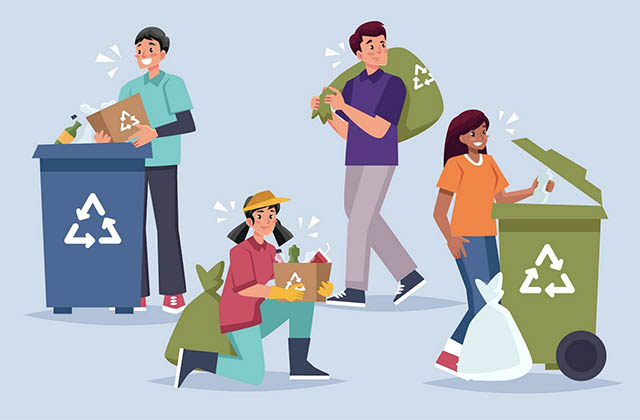
Introduction
When we think of household hazardous waste, we often think of paint and chemicals. But there are many other things that can be considered hazardous waste at home. The following is a list of common items that many people might not realize are considered household hazardous waste:
- Paint, varnishes and strippers
- Auto fluids like motor oil and brake fluid
- Batteries (both rechargeable and disposable)
- Old prescription medications
Household hazardous waste can include all kinds of things, from leftover paint, to auto fluids like oil and brake fluid, to batteries and old prescription medications.
Household hazardous waste can include all kinds of things, from leftover paint, to auto fluids like oil and brake fluid, to batteries and old prescription medications. These items might seem harmless or even useful at first glance—but once they’re in your household garbage can or trash bin, they can cause fires or explosions that threaten the health of you and your family members as well as damage your property. That’s why it’s important to dispose of these materials properly with a service like skip bin hire Adelaide.
They have been providing safe disposal for thousands of households across the country for over 20 years now! They’ll come pick up any amount of hazardous waste (even if it doesn’t fit into one container) from your home—and no matter what kind of household material you bring them (paint from an amateur artist/handyman? Asbestos insulation? Fluorescent light bulbs?), they’ll take care of it safely so that it doesn’t end up polluting our planet either through landfill or incineration.
Many communities have a household hazardous waste collection program that you can use.
You might be able to find a household hazardous waste collection program in your community. If so, ask your local government about it. Some communities have drop-off locations and others may offer mail-in programs.
You can also put some things on the curb with your regular trash.
- You can also put some things on the curb with your regular trash.
- Check with your local waste management authority to find out what is acceptable. If you put something in your trash that is not accepted, it will be sent to a landfill and this is not environmentally friendly.
Some toxic waste can be recycled or repurposed.
Some toxic waste can be recycled or repurposed.
- Battery recycling is a great way to dispose of old batteries. You can find a list of battery recycling locations at Call2Recycle.
- Paint and solvent products can be recycled, too! Check with your local waste management company for more information about your options in your area.
- If you have old motor oil or antifreeze, ask if there’s somewhere nearby that will take it from you (such as an auto shop). You can also pour it down the drain if it’s diluted with water first and disposed of properly—but don’t pour it straight into storm drains!
You have to dispose of household hazardous waste the right way to protect your health and the environment.
Now that you know what household hazardous waste is, it’s time to take action. Whether you have hazardous waste in your home or not, the best way to dispose of it is through a household hazardous waste collection program. These programs are run by local governments and often provide special collection days for residents who bring their household hazardous wastes to designated sites in their community. If there aren’t any programs where you live, however, there are still plenty of options:
- Some items can be recycled at your local recycling facility or taken back to the store where they were purchased (for example, medications).
- Some items can be thrown out with regular trash (for example, empty paint cans).
- Some items might need to go into a sealed bag before being put on the curb with regular trash (such as lithium-ion batteries).
Conclusion
As we’ve seen, there are several ways to dispose of household hazardous waste. You should always check with your local government or community group before you decide what to do with any toxic material. Remember that it’s important not only for your own health, but also for the environment at large that this waste be disposed properly so it doesn’t harm anyone else along the way! Inquire here to dispose hazardous waste.